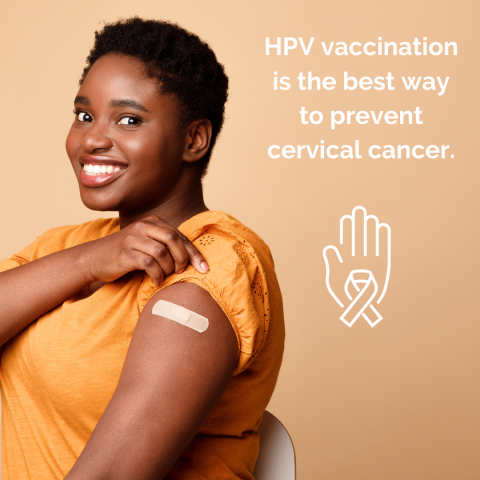Vaccines, Community, and the Power of Prevention: What Americans Really Think
07 July, 2025
As headlines warn of a rising measles outbreak stretching across multiple states, the question of childhood vaccination is once again at the center of public conversation. But despite the noise, a new poll from the Harvard T.H. Chan School of Public Health and the de Beaumont Foundation reveals a clear truth: most Americans, regardless of political background, believe in the importance of vaccines for children.
According to the poll, nearly four out of five adults in the United States say that children should be required to have vaccines against diseases like measles, mumps, and rubella before attending school. This broad support stretches across the political spectrum, with 90% of Democrats, 68% of Republicans, and 66% of those who identify with the “Make America Great Again” or MAGA movement agreeing with vaccine requirements. Even among parents themselves, support holds strong at 72%.
This widespread agreement may surprise some, given the heated debates that often play out online and in the media. But as Dr. Brian Castrucci, president and CEO of the de Beaumont Foundation, points out, “Childhood vaccine requirements are less controversial than many people may think.” Vaccination remains a cornerstone of public health, protecting not only individual children but entire communities from preventable diseases.
Understanding the Debate: Parental Choice vs. Public Health
Of course, not everyone is on board. About one in five adults do not support routine vaccine requirements for school entry. The main reason? Parental choice. Most who oppose these requirements believe that parents should decide whether to vaccinate their children. Concerns about government overreach, potential for too many future vaccines, and suspicion of pharmaceutical companies also play a role. Interestingly, fear about vaccine safety is less common than one might expect, with only 40% of opponents citing it as a major reason.
On the other hand, those who support vaccine requirements do so out of a sense of responsibility and trust in science. They point to the proven effectiveness of vaccines, the duty to keep schools safe, and the real risk that diseases like measles could return if vaccination rates fall. Many also recognize the need to protect children who cannot be vaccinated for medical reasons, relying on the immunity of those around them.
Despite the ongoing debate, the vast majority of Americans—91%—believe that vaccines for childhood diseases are safe for most children. This confidence is shared by parents and spans party lines: 97% of Democrats, 88% of Republicans, and 84% of MAGA supporters agree on vaccine safety, though Democrats are more likely to say vaccines are “very safe.” Only a small minority express doubts about vaccine safety.
The Bigger Picture: Vaccination Beyond Measles

While much of the recent attention has focused on measles, mumps, and rubella, it’s important to remember that vaccination protects against a range of serious illnesses. One vaccine that deserves more attention is the HPV (human papillomavirus) vaccine. HPV is a common virus that can lead to several types of cancer later in life, including cervical, throat, and other cancers. The HPV vaccine, recommended for preteens but available for older teens and young adults as well, is a powerful tool for cancer prevention.
Just like the measles vaccine, the HPV vaccine is safe, effective, and widely recommended by medical experts. Yet, uptake rates remain lower than for other childhood vaccines, often due to lack of awareness or misconceptions about the vaccine’s purpose. By including HPV vaccination in routine immunization schedules, parents can help protect their children from cancer risks that may not become apparent until decades later.
Moving Forward: Empathy and Evidence
As the nation responds to the largest measles outbreak in decades, public health leaders are urging a shift in how we talk about vaccines. Rather than focusing solely on safety, it’s important to recognize that for many families, questions about vaccines are deeply tied to values of autonomy and trust. Empathy, open conversation, and clear information are key to bridging divides and keeping our communities healthy.
Vaccines have transformed public health and saved countless lives. By supporting routine immunization—including for HPV—we not only protect our own families but also contribute to the wellbeing of our schools, neighborhoods, and society as a whole. In times of uncertainty, this shared commitment to prevention is something we can all stand behind.
This article was created with the assistance of AI and fact-checked and edited by a human.
You May Also Like

Nevada Cancer Coalition reaffirms support for multi-dose HPV vaccination schedule
02.13.2026
On Jan. 5, 2026, the Deputy Secretary of the U.S. Department of Health and Human Services accepted a major revision to the standing U.S.

Nevada Cancer Coalition reaffirms support for multi-dose HPV vaccination schedule
02.13.2026
On Jan. 5, 2026, the Deputy Secretary of the U.S. Department of Health and Human Services accepted a major revision to the standing U.S.

Position Statement on HPV Vaccination Schedule
02.13.2026
On January 5, 2026, the Deputy Secretary of Health and Human Services accepted a major revision to the standing U.S.